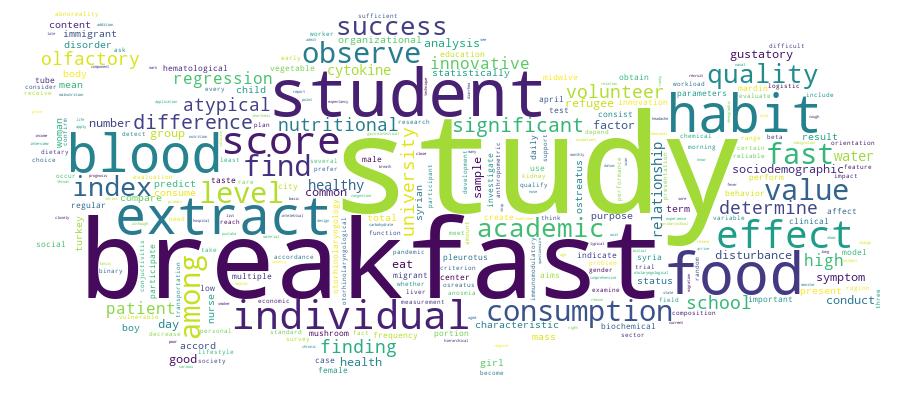Arslan, Nurgül
Loading...

Profile URL
Name Variants
Arslan, Nurgul
Arslan, N.
Arslan, N.
Job Title
Araş. Gör.
Email Address
Main Affiliation
Department of Nutrition and Dietetics/ Beslenme ve Diyetetik Bölümü
Status
Former Staff
Website
ORCID ID
Scopus Author ID
Turkish CoHE Profile ID
Google Scholar ID
WoS Researcher ID
Sustainable Development Goals
17
PARTNERSHIPS FOR THE GOALS

0
Research Products
2
ZERO HUNGER

0
Research Products
5
GENDER EQUALITY

0
Research Products
6
CLEAN WATER AND SANITATION

0
Research Products
13
CLIMATE ACTION

0
Research Products
10
REDUCED INEQUALITIES

0
Research Products
16
PEACE, JUSTICE AND STRONG INSTITUTIONS

0
Research Products
8
DECENT WORK AND ECONOMIC GROWTH

0
Research Products
15
LIFE ON LAND

0
Research Products
3
GOOD HEALTH AND WELL-BEING

2
Research Products
9
INDUSTRY, INNOVATION AND INFRASTRUCTURE

0
Research Products
14
LIFE BELOW WATER

0
Research Products
4
QUALITY EDUCATION

1
Research Products
1
NO POVERTY

0
Research Products
7
AFFORDABLE AND CLEAN ENERGY

0
Research Products
11
SUSTAINABLE CITIES AND COMMUNITIES

0
Research Products
12
RESPONSIBLE CONSUMPTION AND PRODUCTION

0
Research Products

This researcher does not have a Scopus ID.

This researcher does not have a WoS ID.

Scholarly Output
6
Articles
5
Views / Downloads
31/668
Supervised MSc Theses
0
Supervised PhD Theses
0
WoS Citation Count
26
Scopus Citation Count
32
WoS h-index
2
Scopus h-index
2
Patents
0
Projects
0
WoS Citations per Publication
4.33
Scopus Citations per Publication
5.33
Open Access Source
4
Supervised Theses
0
Google Analytics Visitor Traffic
| Journal | Count |
|---|---|
| Acta Scientiarum. Health Sciences | 1 |
| Cukurova Medical Journal | 1 |
| International Journal of Public Health Science | 1 |
| IRANIAN JOURNAL OF PEDIATRICS | 1 |
| Journal of the American Nutrition Association | 1 |
Current Page: 1 / 2
Competency Cloud


